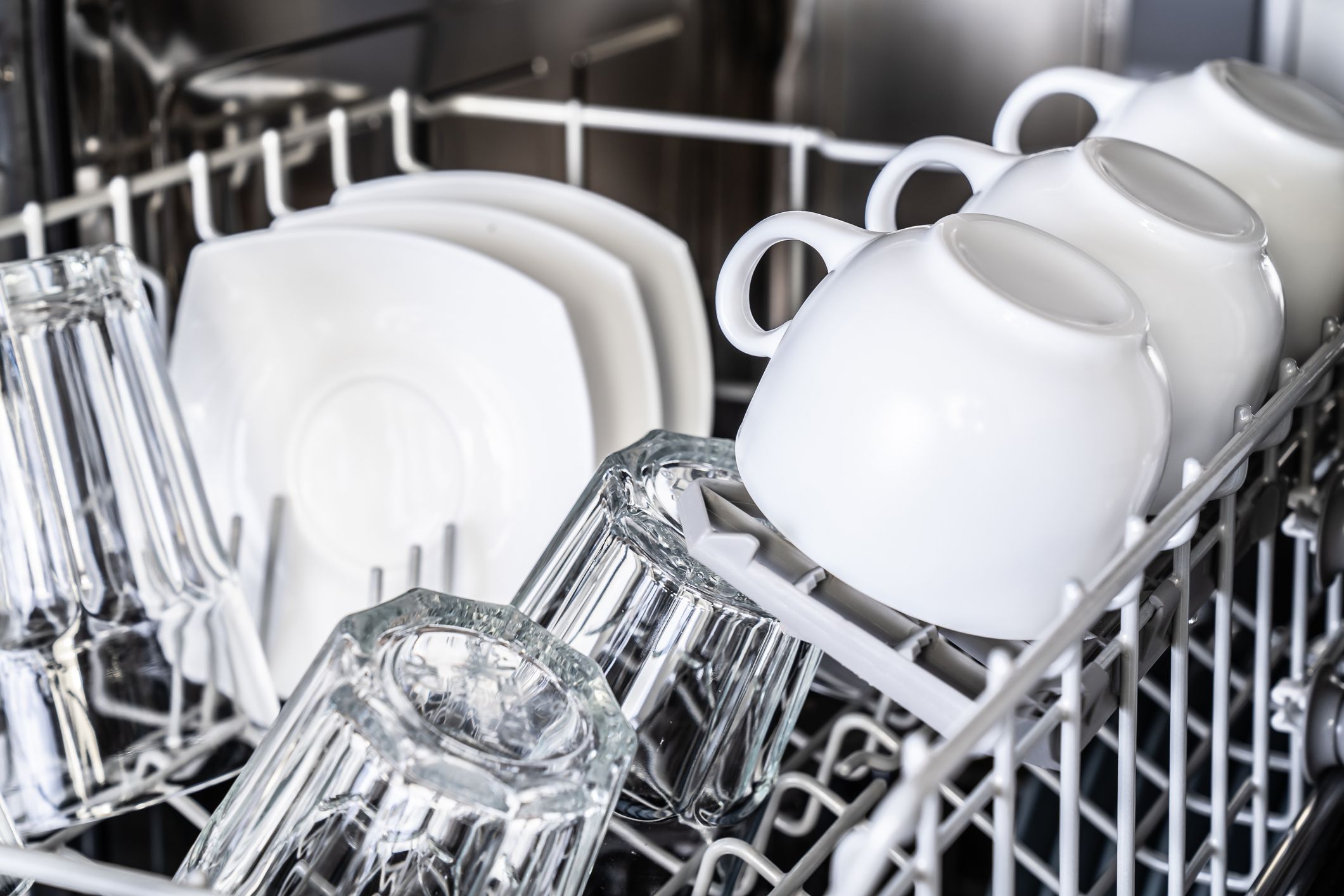CLEANING TIPS
Dishwashing 101: A Comprehensive Guide to Loading the Dishwasher
Published: June 17, 2024
Updated: January 23, 2025


Dishwashers have become an invaluable appliance in so many households, saving time, energy, and water by efficiently cleaning and drying our dishes, but we don’t always use them to their full advantage. Loading a dishwasher might seem straightforward enough—and many agree there’s certainly a wrong way to do it—but a few tips, tricks, and best practices have the potential to revolutionize the cleaning power of each dishwasher cycle.
Pre-Dishwasher Prep
To Rinse or Not to Rinse?
Let’s settle an ongoing debate… While many people believe in the essential pre-rinse, most modern dishwashers are designed to handle the dirtiest dishes without it. In fact, rinsing before washing might even hinder some dishwashers’ performance. Many detergents are now specifically formulated to interact with food particles for optimal cleaning, and your dishwasher’s jets are typically powerful enough to handle anything leftover. Plus, skipping the pre-rinsing step saves you even more time, water, and energy.
Items That Should Never Go in Your Dishwasher
While dishwashers are powerful appliances capable of handling a diverse array of kitchen essentials, there are certain items that should never go through a cycle for the sake of the dishwasher and the item itself. Here are some items that should always be hand-washed:
-
Sharp knives: High-pressure jets and the heat of the dishwasher can damage and dull the blades more quickly than usual.
-
Wooden utensils: The water and heat in the dishwasher may cause wooden utensils to warp, crack, or lose their finish.
-
Non-dishwasher safe materials: Some porous materials like copper or cast iron will negatively react with dishwasher detergent and/or heat and water pressure, damaging their cooking potential.
How to Load the Bottom Rack
Best Practices for Plates and Bowls
-
Place dinner plates between the tines of the bottom rack, angling them towards the center of the dishwasher.
-
Avoid stacking plates on top of each other.
-
Fill any gaps with smaller plates to make the most of your dishwasher's capacity.
-
Position bowls between the tines or along the side, back, or front of the bottom rack, facing the center of the dishwasher.
-
Angle bowls downward for proper cleaning and drainage.
The Correct Placement of Pots and Pans
-
Place larger cookware items, such as pots and pans, along the sides or back of the bottom rack.
-
Angle pots and pans downward for proper cleaning and drainage.
-
Avoid placing flat pans or platters in front of the dishwasher door, as this can block detergent from reaching other dishes.
-
Consider the material of the cookware—some materials, like nonstick coatings, may require a hand-wash.
-
If possible, adjust racks for larger items such as baking sheets or pots to ensure proper flow of water.
-
Position odd-shaped items like mixing bowls or cutting boards in a way that allows water to flow freely around them.
Maximizing Efficiency on the Top Rack

Glasses, Cups, and Stemware Loading Tips
-
Place glasses, cups, mugs, and stemware upside down along the sides of the top rack, from front to back.
-
Secure the stems of wine glasses and champagne flutes in stemware holders, if available, for extra protection during washing.
-
Position small bowls and plates between the tines of the top rack, angling them downward and toward the center of the dishwasher.
-
Avoid overcrowding the top rack to allow for proper water flow.
-
Ensure plastic items are placed on the top rack to keep them from overheating.
Best Uses of Your Utensil Basket
-
Load silverware with handles down.
-
Place knives with blades facing downward to protect your hands when unloading.
-
Avoid overcrowding sections of the basket.
-
Check to see if your utensil basket includes a lid or mechanism to hold certain utensils (or straws and trickier items) in place during the cycle.
With these guidelines, you’re set to get sparkling clean dishes every time. When in doubt, be strategic, trust your intuition, and be mindful of which items are dishwasher-safe.
Bonus tip: always maintain your dishwasher for optimal performance. With a little care and attention to detail, you’re contributing to a cleaner home and greener planet with every load. Happy dishwashing!
Tags
Featured Products
Loading...

